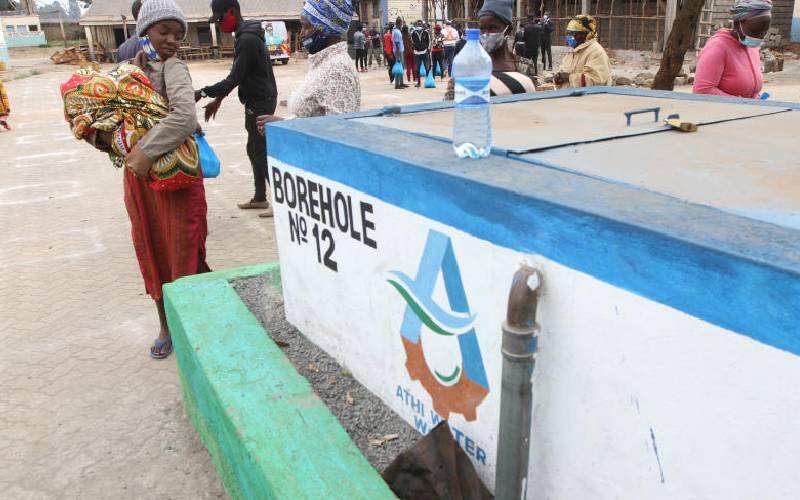×
The Standard e-Paper
Smart Minds Choose Us

A lady carries a child next to a water borehole sunk by the Nairobi Metropolitan services (NMS) in Kiboro Primary School. [Elvis Ogina, Standard]
The Nairobi Metropolitan Services (NMS) has raised the alarm over the number of boreholes in Nairobi’s Eastleigh. Mr Mario Kainga, the Chief Officer, Water, Sanitation and Energy at NMS said the situation was worrying as the underground water was depleting.